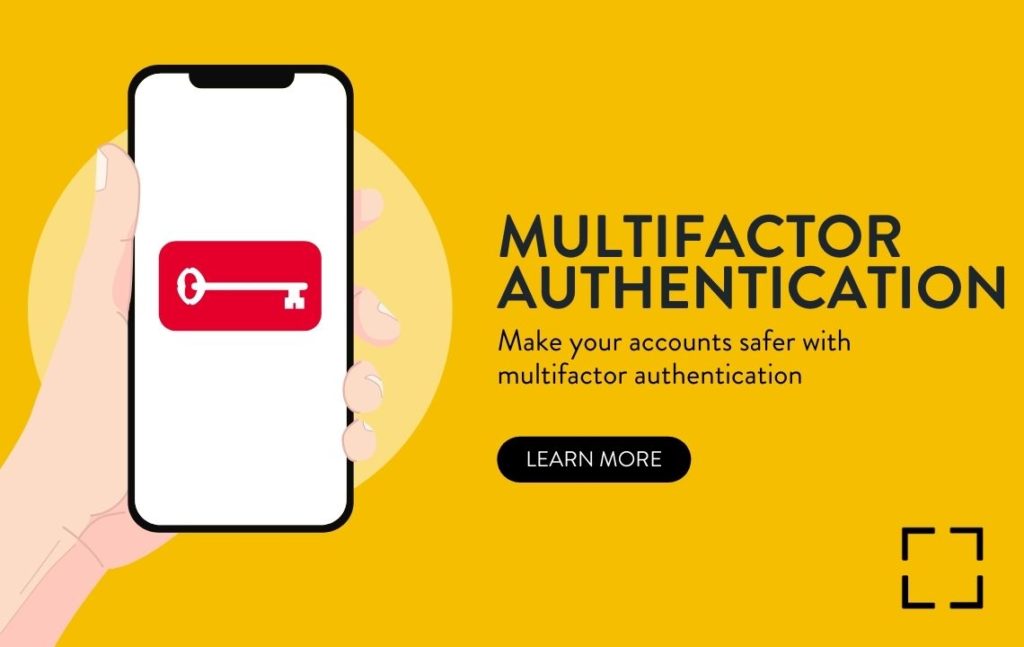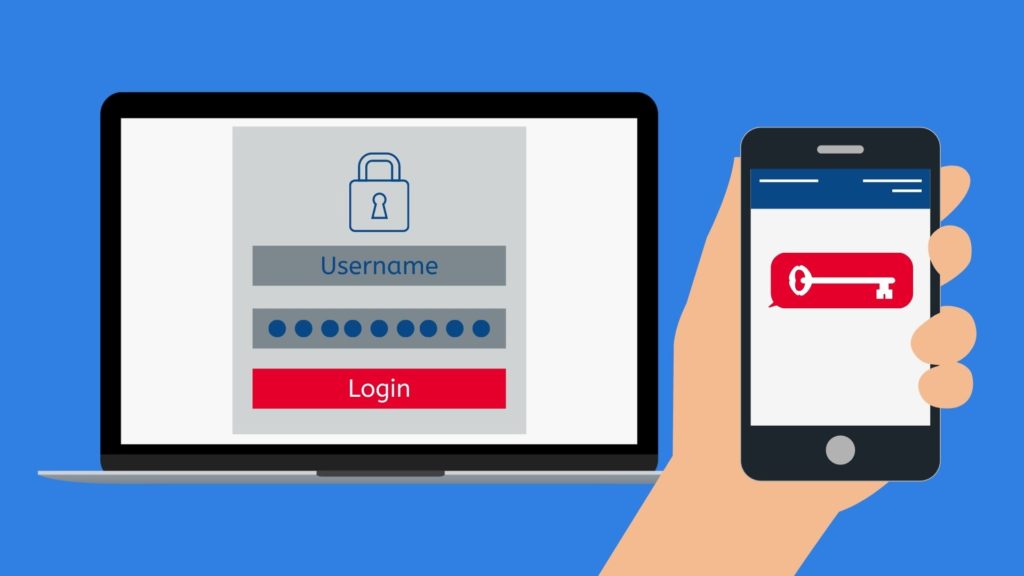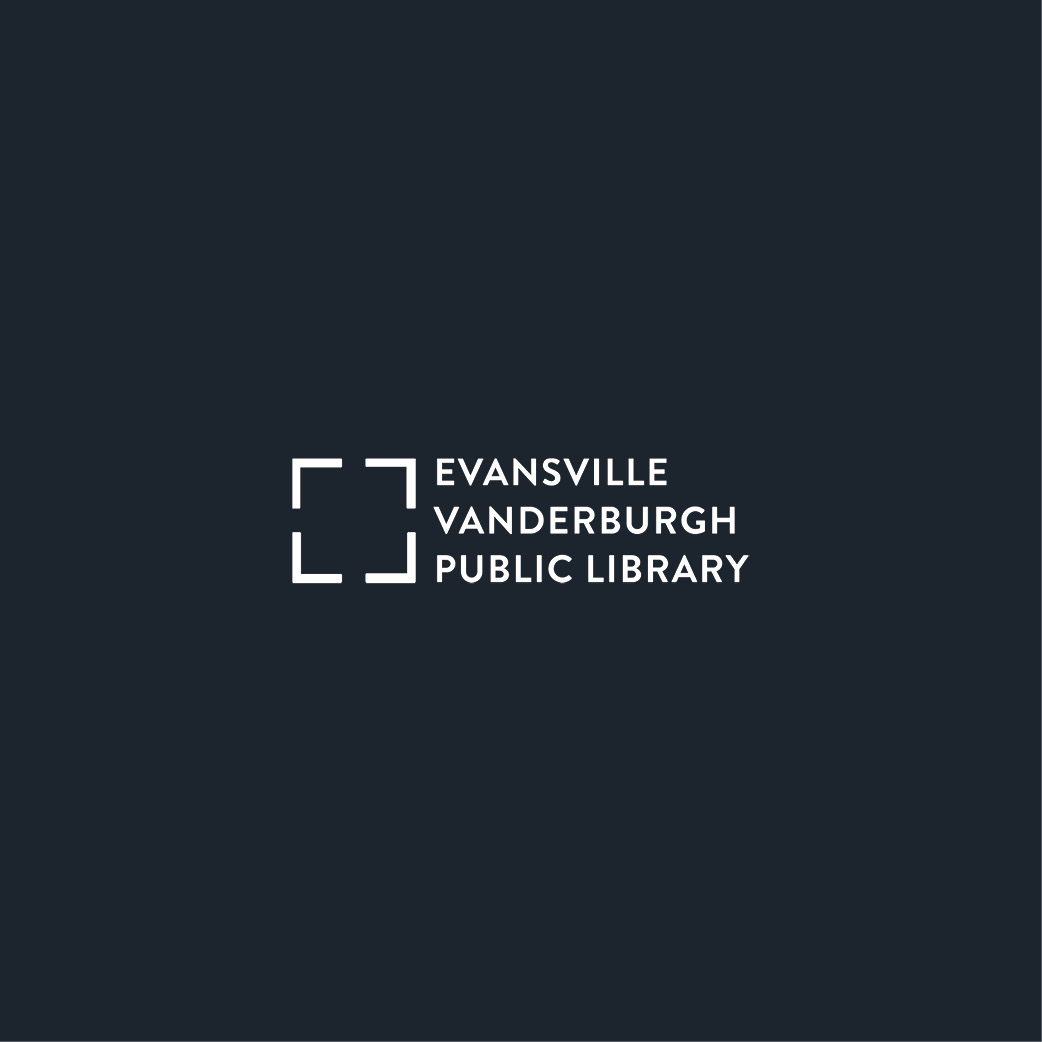Make your accounts safer with multifactor authentication
Let’s look at something new to many folks: two-factor authentication, or 2FA. (In some cases, this may also be referred to as multifactor authentication (or MFA)); for our purposes, we’ll use 2FA.

Why another step? And how?
2FA is a way for you, your email providers, social networks, and other sites to be sure it is you logging in to your account. For example, my personal email has 2FA enabled. When I log in at a library, or when I go to access an account that I rarely check, I might be asked to have a code sent via SMS text message to my phone, or to tap yes on a notification on a mobile app to let me in; this is in addition to my password. This helps prevent someone from using your credentials/password or a hacker that has infiltrated a system from getting in with just a password.

It’s easy to enable 2FA in services like Gmail, Outlook, and Yahoo, as well as with companies with online portals, like credit card providers, insurance, healthcare, and more. Another security point might be to turn on a PIN code. For example, if you want to view your EVPL account online or access many of our digital collections, you will need a 4-digit PIN that we’ve set up with you when opening your account. (Not sure about that code? No worries. Visit your nearest library, call us, or chat online at evpl.org via AskEVPL for assistance.)
More than anything else, using 2FA service is a guard on your identity. We all hear about the rise in identity theft due to breaches in systems. While annoying at times, 2FA exists for your safety and to protect your information. Think of this as being a regular at a coffee shop, library, or gym. The staff you see most often might know you by name; if a new staff member is working who you don’t recognize, they may ask for ID or your name to know you.
Password Essentials
- If you come to the library and need help with an online service, please know your passwords/logins. We can’t reset these for you.
- For creating a password, think of something that is an easy and short phrase or a couple of words (easy for you to remember) with characters that can take the place of letters.
- At the same time, don’t use something that friends or coworkers may think you’d use.
- Example: For “Public Library” I’d do “Pu8L1cL18r@ry” as an example instead of folks just trying “JaneDoe!” or something more simple.
- The longer your password, the harder it is for a hacker or system to guess. You can always try online password generators from online safety services like LastPass and Norton Online Security.
Enabling 2FA on your favorite services
Here’s a downloadable guide on enabling 2FA on many popular web services, courtesy of the Cheshire (UK) Constabulary.
More questions? Feel free to reach out to the EVPL Central Tech Helpdesk:
- Phone: 812.428.8200 ext. 1515 (usually available Monday – Friday, 11:00 am – 4:00 pm)
- Email: tc@evpl.org
- Chat: AskEVPL on evpl.org
Materials
Here are some materials for checkout from EVPL you might find helpful on this and similar topics:
- Cyber Smart: Five Habits to Protect Your Family, Money, and Identity from Cyber Criminals by Bart R. McDonough
- Cybersecurity For Dummies by Joseph Steinberg
- Click here to browse the entire EVPL catalog
Note: This piece may refer to links outside of the EVPL system. These links are not considered specific endorsements of products or services by EVPL or its staff or community partners. Please refer to local businesses or companies who make your devices or software for specific support.
—
This post was created by Jake K., Tech Librarian at EVPL Central, and Chase B., Experience Facilitator at EVPL Red Bank.

EVPL Staff
With 8 locations throughout Vanderburgh County, EVPL is ready to discover, explore, and connect WITH you! We encourage you to uncover new things, revisit old favorites, and to engage with us along the way.
200 SE Martin Luther King Jr. Blvd
Evansville, Indiana 47713
Administration: ceo@evpl.org
Card & Account: circulation@evpl.org
Feedback & Ideas: marketing@evpl.org



